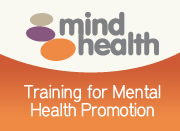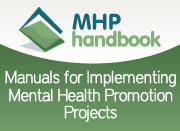Tools
- Utilities:
- Print this page
- Send this page
- Font size:
- Increase font size
- Decrease font size
Coping with Stress Course (CWS)
30/09/2009
Tool Information
Tool Description
The Coping with Stress Course (CWS), targeted at adolescents elevating depressive symptoms, or „demoralization“, is a group-based prevention programme to prevent mood disorders, unipolar depression later in life. The program involves cognitive-restructuring techniques in which participants learn to identify and challenge negative or irrational thoughts.
Tool Characteristics
Application in the Field: Applied internationally
Tool mainly used in: United States
Stage of Development: Well established
Evaluation and Research: Studies/Technical Data available
Beneficiary Involvement in Design: No information found
Evaluation Description
The study by Clarke et al. (1995) reported: 1) On the K-SADS-E and LIFE interviews, a significant advantage was found for the CWS group at 12 months, with incidence rates for affective disorder of 15 percent compared with 26 percent for the control group. No significant differences were detected on the HAM-D, or for disruptive behavior, anxiety, or substance abuse. 2) Analyses of the GAF score found a significant effect favoring the treatment group from pretest to initial posttest, but no significant effects when the entire study period was examined (pretest to 12-month follow-up). 3)Outcomes on the self-reported CES-D showed significantly fewer cases of either major depression and/or dysthymia (a more minor form of depression) for the treatment group compared with the control group from pretest to initial posttest. No significant differences were detected when outcomes were measured from pretest to 12-month follow-up. Clarke et al. (2001) found: 1)The CWS group scored significantly better than the control group on the CES-D, the HAM-D, the K-SADS-E suicide symptom total, and the GAF. 2) Analyses of major depressive episodes during a 14-month follow-up (on average) found a significant advantage for the treatment group (9 percent incidence) compared with the control group (29 percent incidence). 3)No significant effects were found for parent reports of child depression, or behavior problems on the CBCL externalizing or internalizing scales.



